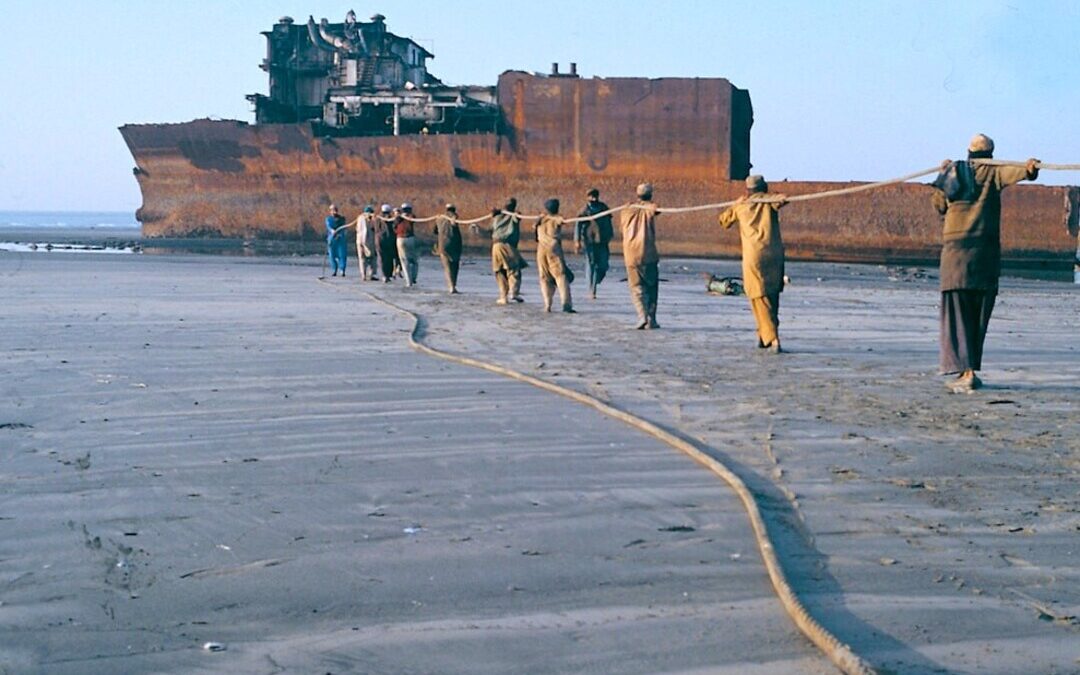Global Ship Recycling Rules Take Effect Under Hong Kong Convention
New global rules mandate safer, greener ship recycling to protect workers and the environment from hazardous materials.
A major international treaty governing the recycling of ships entered into force on Wednesday, requiring vessels reaching the end of their operational lives to be dismantled in a safe and environmentally sound manner.
The Hong Kong International Convention for the Safe and Environmentally Sound Recycling of Ships, adopted in 2009 under the International Maritime Organization, became legally binding on June 26, following years of negotiation and ratification efforts.
Global Standard for Sustainable Shipbreaking
The treaty outlines mandatory regulations governing the design, construction, operation, and preparation of ships to facilitate safe recycling, as well as measures for the operation of recycling facilities. It also includes mechanisms for certification, inspection and enforcement.
IMO Secretary-General Arsenio Dominguez called the Convention’s entry into force “a watershed moment” for the industry.
“This achievement reflects years of dedicated work and will renew our drive to safeguard human health and the environment in this critical industry,” Dominguez said in a statement.
Hazardous Materials and Worker Safety in Focus
The Convention aims to address long-standing safety and environmental risks in the global shipbreaking industry, which is largely centered in South Asia.
Ships typically contain hazardous substances such as asbestos, polychlorinated biphenyls and ozone-depleting compounds.
The treaty bans or restricts the use of these substances and requires ships to maintain detailed inventories of hazardous materials throughout their lifecycle.
It also sets standards for worker safety at ship recycling yards and outlines procedures for monitoring and compliance.
Stakeholders bound by the Convention include shipowners, shipbuilders, recycling yards, flag states, port states and recycling states.
Support for Developing Nations
To help developing countries meet the Convention’s requirements, the IMO has conducted global workshops and launched the Safe and Environmentally Sound Ship Recycling project, funded by the Norwegian government.
The initiative offers policy support, governance frameworks and training on sustainable recycling practices.
SENSREC is currently active in Bangladesh and Pakistan — two of the world’s largest ship recycling hubs.
Convention Covers Majority of World Fleet
Adopted in Hong Kong in May 2009, the treaty required ratification by at least 15 states representing 40 percent of the world’s merchant shipping by gross tonnage, and a significant share of recycling capacity. These conditions were met in 2023, triggering its entry into force 24 months later.
There are now 24 parties to the Convention, including major flag states such as Japan, Liberia, the Marshall Islands and Panama, as well as four leading recycling nations: Bangladesh, India, Pakistan and Türkiye. Together, they represent over 57 percent of the world’s shipping by tonnage.
The treaty was developed in cooperation with the International Labour Organization and the Basel Convention and received input from intergovernmental and non-governmental organizations.
Nirmal Menon
Related posts

Subscribe
Error: Contact form not found.


